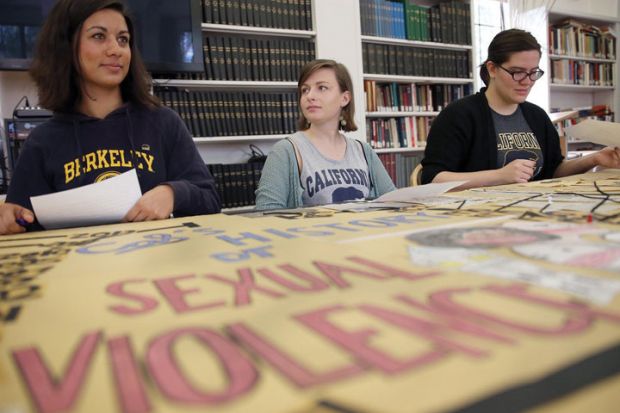The Obama administration’s 2011 guidance on campus sexual misconduct pushed US universities to take such a tough line on defendants that more than 160 have successfully challenged their treatment in court, a study has found.
More than 340 defendants in campus-based proceedings have filed complaints in federal court since 2011, with colleges losing 90 outright and settling another 70, according to the analysis published in the NYU Journal of Legislation & Public Policy.
The data suggest that the 2011 Obama policy, while meant to protect sexual assault victims, may have emboldened the Trump administration’s controversial pursuit of policies that would make their cases more litigious.
The Obama guidelines “all but ensured schools would find more accused students responsible in campus sexual misconduct cases”, write the study’s authors, Samantha Harris, a policy researcher at the Foundation for Individual Rights in Education, and KC Johnson, a professor of history at CUNY Brooklyn College.
The Trump administration in September 2017 rescinded the 2011 Obama guidance, and in November 2018 proposed new federal rules that would more firmly codify its own approach, which would include allowing defendants the right to cross-examine accusers.
The Department of Education has received an unusually large number of public comments on the regulation – more than 100,000, many in sharp opposition – but it is nevertheless expected to implement the rules soon.
Opponents of the Trump plan include the American Council on Education, the main lobby group for US higher education, which fears that the regulation will force campuses to change their relatively low-profile hearing processes into something more like a full-blown court trial.
US colleges, however, have long struggled with the question of whether they are the proper venue for handling sexual assault complaints. Their current role was largely established by a 1972 addition to federal law, known as Title IX, that imposed broad requirements on colleges to protect students from a range of sex-based discrimination.
The 2011 policy, Ms Harris said, led to “a dramatic increase in the number and the aggressiveness” of federal investigations of universities for alleged Title IX violations, which spurred more aggressive investigations by the colleges of suspected sexual misconduct.
“While this is not in and of itself a bad thing, many schools responded to that pressure by eliminating critical procedural protections and simply making it easier to find students guilty, whether they were actually guilty or not,” she said. “The result has been years of students being effectively labelled as sex offenders without having had so much as a hearing at which they could attempt to clear their name.”
But another expert, Julie Goldscheid, a professor of law at the City University of New York, said US colleges still need to work hard at addressing a range of sexual discrimination and assault problems addressed by Title IX.
Widespread concern over the pending Trump policy largely focuses on the chilling implications of forcing sexual assault victims to testify in their own cases, Professor Goldscheid said, while the data cited in the Harris-Johnson study concern a far wider range of sexual misconduct cases.
“Rather than diluting Title IX’s commitment to equal access to educational opportunities, the administration should recognise the biases and stereotypes that make it difficult to bring sexual harassment and assault complaints,” she said.
Register to continue
Why register?
- Registration is free and only takes a moment
- Once registered, you can read 3 articles a month
- Sign up for our newsletter
Subscribe
Or subscribe for unlimited access to:
- Unlimited access to news, views, insights & reviews
- Digital editions
- Digital access to THE’s university and college rankings analysis
Already registered or a current subscriber? Login








